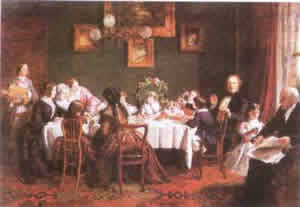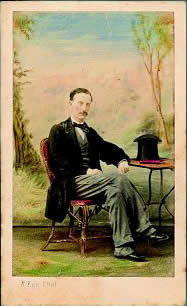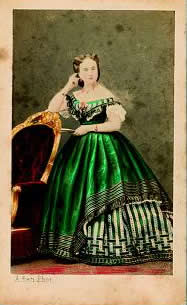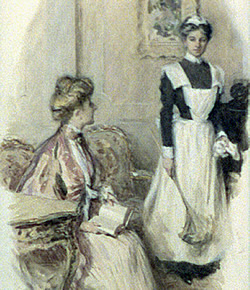
Nanny in the nursery
Rich families had large houses, with a special room for children called the nursery. This was often at the top of the house. In the nursery younger children ate, played and slept. They were looked after by a woman called a nanny. She took them for walks in the park or to the zoo. Some rich children saw their parents only in the morning and evening, and were looked after mostly by their nanny and by other servants. Most Victorians thought children should be 'seen and not heard'.
The person who looked after the children was called a nanny.

Fun at home
Victorians made their own entertainment at home. They had no radio or TV. They enjoyed singing, and a rich family would sing around the piano, while poorer families enjoyed tunes on a pipe or a fiddle. Families played card games and board games, and acted out charades.
At birthday parties, a special treat was a magic lantern show. An oil or gas lamp sent a beam of light through a glass lens and onto a screen, to show enlarged images, perhaps of wild animals or a story told in pictures.

The father
He was the head of the household. He was often strict and was obeyed by all without question. The children were taugh to respect their father and always spoke politely to him calling him "Sir".

The mother
Her main work in the house was doing the dinner, washing clothes, and cleaning. But the most important task was learning the children.

The Children
Help her mothers to do her tasks to borrow money, they learn read and write if their fathers knew it, but if they have a rich parents they went to a school.

Servants
In the rich families was common to have a servant, who did a lot of tasks in the house, for example, cleaning the rooms, cooking, etc.

